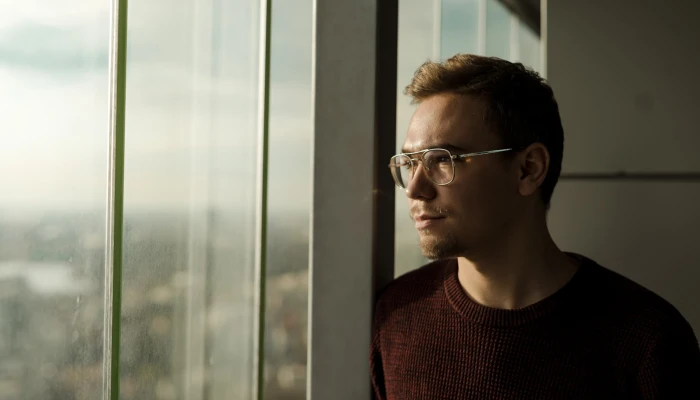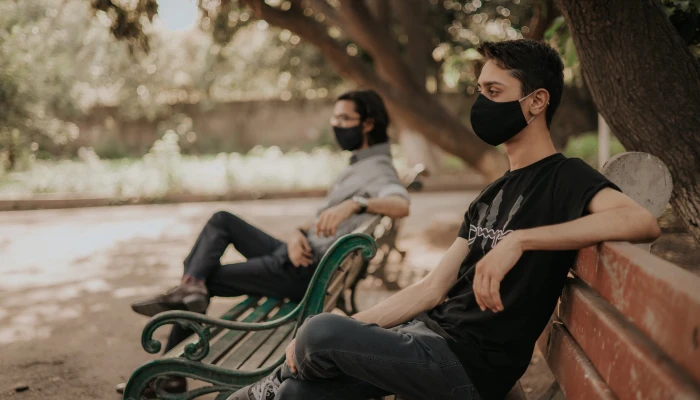Mindfulness: a vital business tool for adjusting to Covid-normal
As millions of Australians breathe a big sigh of relief at restrictions easing, a sobering reality sinks in with regards how we now live and work with Covid-19 going forward, an outlook contributing to stress and anxiety in employees, some of whom are already experiencing the effects of burnout.
There has certainly been a lot to keep people leaders on their toes: a shifting landscape of remote working, hybrid working and back-to-work mandates, all making it difficult to observe, let alone tend to, the wellbeing needs of staff. Increasingly they have been looking to new tools and strategies to bring teams together in the hopes of cushioning the re-entry and transition, maybe even alleviating anxiety and re-energising burnt out employees in the process. One of those tools has been mindfulness.
En Masse Head of Psychology Dr Andrew Stock has observed, both in his clinical practice and workshop facilitating, the potential for mindfulness to support employees through helping them acknowledge and embrace change.
“The key with mindfulness is that it encourages acceptance of what is and focuses on being present.
“In our professional lives, we tend to be guided by critical, problem-focused thinking that pulls us away from what is. Add Covid to the mix, and our eyes are drawn constantly to what’s around the corner in the way of new settings and potential impacts on our health or family life. With these thoughts typically come fear, stress and anxiety. It takes regular practice to slow down these thoughts and allow ourselves to think more flexibly. If we can do so, it really helps us to navigate through difficult times.
“The opportunity exists for organisations to run team-based mindfulness sessions, not only to provide a strategy to alleviate anxiety, stress and burnout, but to also support connection and cohesiveness of the team with this shared experience, either together in the office or virtually, working from home.”
The most common myth about mindfulness is that it about calming the mind or emptying the mind of all thoughts.
What is mindfulness?
Mindfulness is essentially a state of non-judgmental, present-moment awareness. When we are being mindful, we are observing and accepting the moment for what it is, we disengage from the mental chatter and any worries or anxieties we may have about the past or future. We clear away the clutter in our minds, so to speak, and are able to focus on the task we’re doing. This is similar to the feeling we experience when we swim in the ocean or watch a beautiful sunset. We don’t analyse these things; we simply experience and observe them.
Practising mindfulness at work can have far-reaching impacts on individual wellbeing and on the workplace as a whole. Results of workplace studies have indicated that employees who regularly engaged in mindfulness experienced better concentration, greater energy, increased levels of engagement, more creative thinking, and greater resilience and ability to cope with challenges.1 This in turn develops a culture of wellbeing in the workplace, where employees experience better mental health and perform better too.2
What mindfulness is not
The most common myth about mindfulness is that it is about calming the mind. A calmer mind, relaxation, reduced stress, and feelings of joy and happiness can result from mindful meditation practice; however, these are the by-products rather than the purpose.3
The purpose of mindfulness and meditation is not to escape your reality or to become more calm and relaxed; rather it is to become more conscious, and more aware of your physical, emotional, psychological and existential processes.3 It is also untrue that mindful meditation involves emptying your mind of all thoughts. Rather it involves acknowledging your thoughts and creating awareness of them rather than mindlessly being carried away by your thinking patterns.
The aim of mindfulness is not to become the perfect meditator – perfection is not possible. This is why it is called “practice”. There is no good or bad meditation. It is just your experience at the time.
Mindfulness does not need to be as time-consuming as you might think. You can start with just five minutes of focus on the breath and ideally slowly build up to longer sessions to reap the benefits. A Harvard University study found that individuals who spent 27 minutes per day on meditation over a period of just 8 weeks, literally changed their brains for the better.4
When we take a moment to simply sit and breathe, especially in the presence of others who are doing the same, we have the potential to be changed and to change our workplace for the better. Just imagine the benefits of all your staff going about their day more focused and less stressed!
If you are looking for an innovative way to support your team through the transition to Covid-normal work settings, consider bringing them together to enjoy some En Masse mindfulness workshops. Each includes a guided mindfulness exercise with a different need-state focus, and the option of podcasts to continue the practice. Contact us to learn more.
Reference
- Aikens KA, et al (2014). Mindfulness goes to work: impact of an online workplace intervention. J Occup Environ Med, Vol. 56, No. 7, pp. 721-731, http://www.ncbi.nlm.nih.gov/pubmed/24988100.
- Congleton C, Holzel BK, Lazar SW (2015). Mindfulness Can Literally Change Your Brain. Harvard Business Review, https://hbr.org/2015/01/mindfulness-can-literally-change-your-brain.
- Goldstein E (2014). The top 5 myths about mindfulness meditation. Mindful, 2014. Available from https://www.mindful.org/the-top-5-myths-about-mindfulness-meditation/.
- McGreevey S (2011). Eight weeks to a better brain. Harvard Gazette, 2011. Available from http://news.harvard.edu/gazette/story/2011/01/eight-weeks-to-a-better-brain/.


